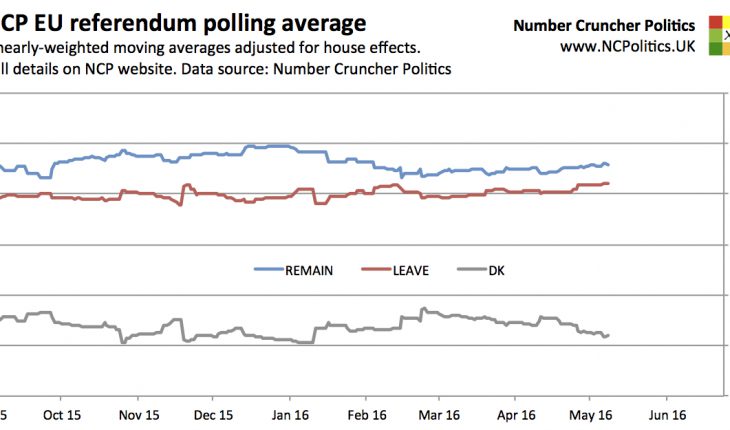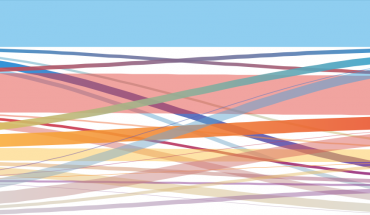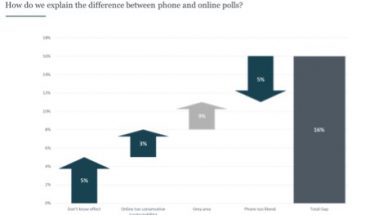Last week's midterm elections managed to take the focus away from the EU referendum, but only temporarily. There hasn’t been a great deal of referendum polling over that period, so the NCP model remains little changed, showing a 77.7% chance of Britain voting to Remain.
In today’s Times, Danny Finkelstein discusses online versus phone polling, with reference to the NCP/Populus joint work, plus anecdotes about the SDP and washing powder. Since James Kanagasooriam and I did the analysis, a few things have happened. The gap between the modes has narrowed further. We’ve also had the devolved elections in which, as I noted yesterday, 10 of the 12 online polls in the final two weeks overestimated support for UKIP, and none underestimated it.

For those of you that haven’t seen it, there’s the summary of Polls apart here, including a link to the full version, and a followup piece in which I rebutted some of the points that were raised subsequently. In particular, it has been suggested that the analysis ignored interviewer effects – the tendency of respondents to give more socially desirable responses to a live interviewer than to a computer. This is most certainly not the case, as was made very clear in the paper. There is ample evidence that online and phone polls are sampling different types of people.
Interestingly Peter Kellner, who was President of online pollster YouGov at the time the report was published but who has since retired, went on record at a Media Society event on Monday to say he thought that phone polls were closer to the mark on this occasion. Keiran Pedley and Leo Barasi also discussed this in the latest PB/Polling Matters podcast:
Importantly, they remind us that this race is not neck-and-neck – it is neck-and-neck according to online polls, but phone polls show a clear Remain lead. If you say that the race is neck-and-neck, you implicitly assume that online is right and phone is wrong. There’s nothing wrong with taking that view, but it’s not one that most people realise they’re taking.

This doesn’t just apply to the levels – it also matters when we come to talk about changes. The problem for those of us trying to do objective analysis is that phone polls haven’t been coming around all that often, and the ones we do get, tend to be at roughly the same time of the month. As a result, we’ve only had one GB-wide phone poll entirely after the Obama intervention, and even that was a fortnight ago. But interestingly, we did get a Scottish Survation phone poll for the Daily Record, showing Remain 41 points ahead (as this series has just made the switch to online polling, the previous poll isn’t directly comparable).
Details are also emerging about the schedule of TV debates next month. Sky will feature David Cameron and Michael Gove separately on 2nd June, and another event some time later. ITV will host “Cameron & Farage Live” on June 7th and “The ITV Referendum Debate” on June 9th. These are in addition to the BBC events already announced for June 16th and June 21st. The presence of Farage, who is affiliated to Leave.EU has angered the official Vote Leave campaign:
Hearing from @tnewtondunn that Vote Leave is to sue ITV for inviting Nigel Farage to their #EUref debate, not one of their representatives
— NCP EU Referendum (@NCPoliticsEU) May 11, 2016
Tomorrow the ONS will issue a “clarification note” on the discrepancy between official migration statistics and the number of National Insurance numbers issued. It has been speculated that official statistics have been understating “true” migration, so this will presumably shed some light on it. See this summary from Alberto Nardelli.



